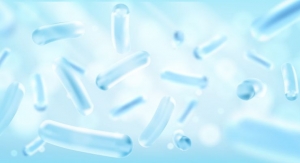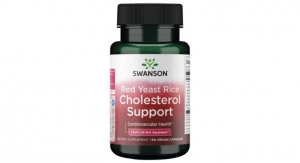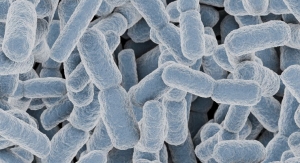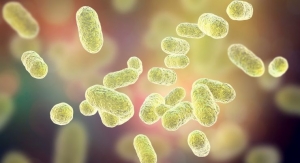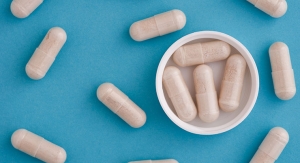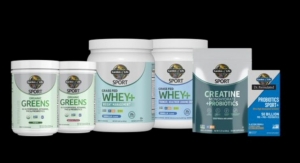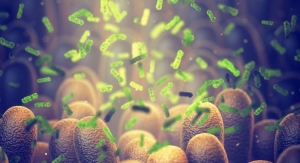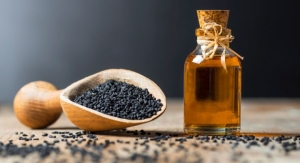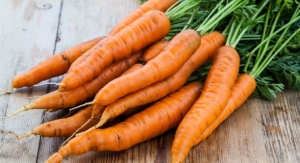11.11.20
Daily consumption of aspartame and sucralose, the two non-nutritive sweeteners (NNSs) most commonly used as sugar substitutes in beverages, might not have any impact, adverse or otherwise, on the human gut microbiome, according to a recent University of Manitoba study published in the journal Nutrients. Further, the two sweeteners had no impact on the production of short-chain fatty acids (SCFAs), which are produced in the gut through fiber fermentation and are known to be very volatile in response to dietary changes. SCFAs have a role in glucose metabolism, lipid metabolism, appetite regulation, and the immune system, the authors of the study said.
While prior animal studies have suggested that NNSs could potentially disrupt the gut microbiome, the evidence didn’t translate in this trial, likely one of the first of its kind involving human participants.
“Any change in the number, composition, or quality of the gut microbiome may affect the different physiological roles of these microbes and cause gut microbiota dysbiosis,” the authors of the study said. “Unhealthy diets that are rich in saturated fat and refined sugar, along with decreased physical activity, have been linked to gut microbiota dysbiosis, which may cause impaired glycemic control […] more recently, NNS research has focused on the effect of non-nutritive artificial sweeteners on the gut microbiota due to their possible impact on insulin resistance, obesity, and inflammation.” However, research on outcomes in the gut caused by NNSs is scarce to date.
In a preliminary study intended to evaluate the impact that these two common NNSs would have on the trillions of gut bacteria present in the digestive tract, 17 healthy participants between the ages of 18 and 45 years old who had a BMI of 20-25 underwent two 14-day periods in which they took a daily dose of aspartame, and then sucralose, and had their fecal samples collected for analysis of changes to their microbiome and short-chain fatty acid production. The researchers used an aspartame dose that was 14% of Health Canada’s Acceptable Daily Intake (ADI), since the aspartame ADI would equate to the content found in 20 servings of Diet Coke, and approximately 20% of the ADI for sucralose, as the ADI for it represents 14 servings of diet iced tea. The dosages used in the study were reflective of about three cans of diet soda per day, making the dosage level high but reasonable and realistic. Additionally, the participants were prohibited from drinking more than two cups of caffeinated drinks, and no more than 10 mL of alcohol, and any probiotic supplements or foods containing probiotics were off limits.
Fecal sampling indicated that there were no changes to the six short-chain fatty acids evaluated in any of the study participants, the authors wrote, and, additionally, there were no measurable impacts on gut microbiota. Additionally, neither of the NNSs used in the study had any measurable effect on glucose metabolism or insulin sensitivity, the authors said.
“Unlike our findings, previous animal studies have shown different effects of NNS on different bacterial genera,” the authors said. “It has been suggested that these disruptions in the gut microbiome might interfere with host gut functions and could impact health. Additionally, some animal studies have shown changes in SCFAs. Extrapolating NNS animal data to humans must be done cautiously as animal data is often a poor predictor of human response.”
While prior animal studies have suggested that NNSs could potentially disrupt the gut microbiome, the evidence didn’t translate in this trial, likely one of the first of its kind involving human participants.
“Any change in the number, composition, or quality of the gut microbiome may affect the different physiological roles of these microbes and cause gut microbiota dysbiosis,” the authors of the study said. “Unhealthy diets that are rich in saturated fat and refined sugar, along with decreased physical activity, have been linked to gut microbiota dysbiosis, which may cause impaired glycemic control […] more recently, NNS research has focused on the effect of non-nutritive artificial sweeteners on the gut microbiota due to their possible impact on insulin resistance, obesity, and inflammation.” However, research on outcomes in the gut caused by NNSs is scarce to date.
In a preliminary study intended to evaluate the impact that these two common NNSs would have on the trillions of gut bacteria present in the digestive tract, 17 healthy participants between the ages of 18 and 45 years old who had a BMI of 20-25 underwent two 14-day periods in which they took a daily dose of aspartame, and then sucralose, and had their fecal samples collected for analysis of changes to their microbiome and short-chain fatty acid production. The researchers used an aspartame dose that was 14% of Health Canada’s Acceptable Daily Intake (ADI), since the aspartame ADI would equate to the content found in 20 servings of Diet Coke, and approximately 20% of the ADI for sucralose, as the ADI for it represents 14 servings of diet iced tea. The dosages used in the study were reflective of about three cans of diet soda per day, making the dosage level high but reasonable and realistic. Additionally, the participants were prohibited from drinking more than two cups of caffeinated drinks, and no more than 10 mL of alcohol, and any probiotic supplements or foods containing probiotics were off limits.
Fecal sampling indicated that there were no changes to the six short-chain fatty acids evaluated in any of the study participants, the authors wrote, and, additionally, there were no measurable impacts on gut microbiota. Additionally, neither of the NNSs used in the study had any measurable effect on glucose metabolism or insulin sensitivity, the authors said.
“Unlike our findings, previous animal studies have shown different effects of NNS on different bacterial genera,” the authors said. “It has been suggested that these disruptions in the gut microbiome might interfere with host gut functions and could impact health. Additionally, some animal studies have shown changes in SCFAs. Extrapolating NNS animal data to humans must be done cautiously as animal data is often a poor predictor of human response.”


